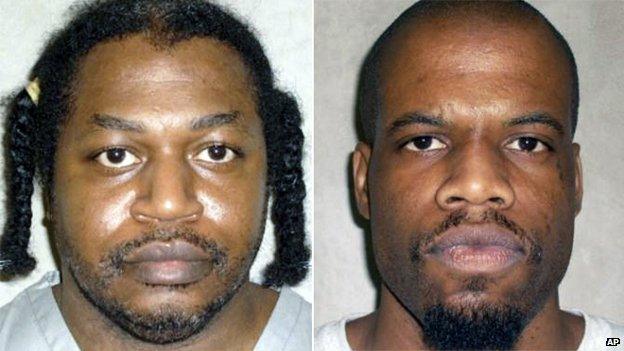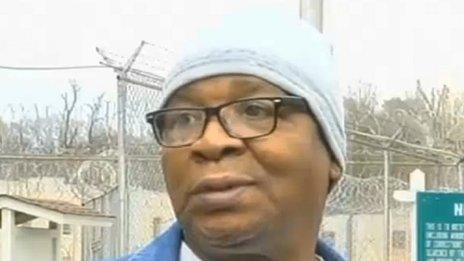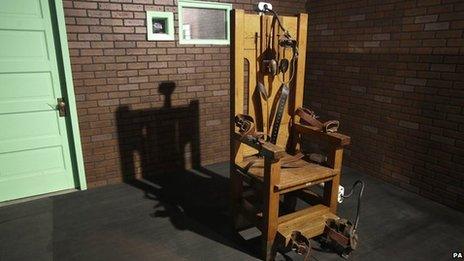Oklahoma executions delayed amid lethal drugs 'secrecy' row
- Published

Warner and Lockett challenged Oklahoma state law keeping the identities of suppliers secret
The Oklahoma Supreme Court has delayed the execution of two murderers who challenged a state law preventing death row inmates learning the source of the drugs used to kill them.
The decision comes one day before Clayton Lockett, 38, was due to die.
Another inmate, Charles Warner, was scheduled to be executed on 29 April.
Last month, a judge ruled that the secrecy surrounding the source of the state's lethal injection drugs was unconstitutional.
The court decision came as US states are having increasing trouble obtaining drugs used in executions, amid an embargo from European pharmaceutical firms.
Critics say the states risk botching executions and causing unnecessary suffering with impure drugs.
In January, an execution in Ohio took 25 minutes to complete, as the inmate reportedly gasped and made choking noises in the moments before he was pronounced dead.
The state used two untried drugs to kill convicted murderer and rapist Dennis McGuire after the maker of the previous execution drug refused to allow its use.
'No proof'
Oklahoma state law blocks officials from revealing - even during court proceedings - the identities of the companies supplying the drugs used to sedate the inmates, paralyse their respiratory systems, and stop their hearts.
The challenge to Oklahoma's law was brought by Lockett, who received the death penalty for the 1999 shooting of a 19-year-old woman, and Warner, who was convicted for the 1997 murder and rape of an 11-month-old girl.
Oklahoma County district court Judge Patricia Parrish struck down the secrecy law on 26 March, saying the protocol that prevented the inmates from seeking information about the drugs used violated their rights.
The state said on 1 April that the men would be executed using midazolam, pancuronium bromide and potassium chloride - a combination never before used in Oklahoma, according to the Associated Press.
But the lawyers for the inmates said they had received no information showing that the drugs were "safe, or to prove that they were acquired legally".
The supreme court stayed the executions on Monday until final determination of the issues surrounding the secrecy law are settled, according to reports.
Thirty-two US states have death penalty laws and 18, as well as the District of Columbia, have abolished capital punishment.
But in recent years only a handful of states have actually carried out executions - nine in 2013 and seven in 2012.
- Published15 November 2013

- Published12 March 2014

- Published17 January 2014

- Published5 March 2014
